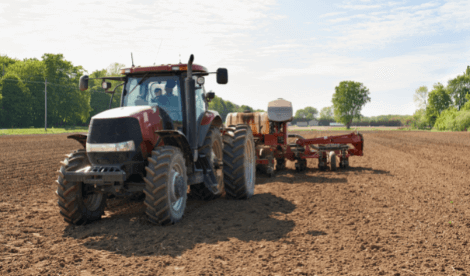Simon Budden
- Director of Agriculture
- +44 (0)330 124 1399
- Email Simon
Suggested:Result oneResult 2Result 3
Sorry, there are no results for this search.
Sorry, there are no results for this search.
View all peoplePublished by Simon Budden on 26 July 2019
Share this article
Earlier this summer members of our team attended the inaugural and very successful Viti-culture event at Plumpton College and we were musing over how many farms with the ever-increasing opportunities to diversify, are now aspiring to and becoming tourist destinations?
Whether diversification is through new opportunities around viticulture, offering farm tours, farm shops/cafes, glamping or creating a more bespoke ‘brand experience’ for the Instagram generation, there are seemingly endless opportunities and farmers are becoming very entrepreneurial at spotting and exploiting them.
According to the National Farm Attractions Network there are now 400 farm / rural destinations in the UK receiving a staggering 20 million visitors each year. This is a sector employing an estimated 6,000 local people and providing opportunities for visitors to buy local produce. They are also helping to educate local school children and investing an estimated £20m back into the economy each year. This data feels quite conservative but is indicative of the increasing significance of this type of enterprise.
Whilst there will always be many pros to diversifying your farm business from its core activity, there are also many considerations, including:
Looking at the business case for opening as an attraction – what local competition is there already, who is your target market, will yours just be a seasonal business or have visitors all year around? Consider also are you a natural with engaging and dealing with the public, or is this role better suited to someone else?
What expenditure you will you have, such as improving site access, building car parks or converting buildings, what professional services such as planning advice, legal etc will you need. Will you face stiff opposition from local people opposed to any increase in traffic or changes of site use?
Next is the phase with the bulk of the costs and time needed to get the tourist offering up and running, from building work to completion and then the ongoing costs associated with running a new business – risk assessments, staffing, insurance, business rates, compliance, ongoing marketing and dealing with customer service issues. The list can be quite long depending on the type of tourism project you are planning.
All of this may need to be done whilst you are running your core farm business so it is worth not underestimating the scale that some of these projects can reach.
How you finance diversification of any type is important. It is likely to be a drain on your cash flow until it becomes established, unless you have significant funds to reinvest in the business. There is some grant funding worth exploring for certain types of tourism projects depending on your location.
The structure of the enterprise also needs detailed consideration, not only in the context of short and longer-term tax mitigation but from commercial perspectives.
Whilst there is certainly much to think about, diversification of any type can present you with an excellent opportunity to invigorate your existing business. Get in touch with Simon Budden, Director of Agriculture at Kreston Reeves, via email or on +44 (0)330 124 1399, to discuss your ideas.
Join over 8000 businesses and individuals who receive our complimentary e-bulletins by signing up here.
Share this article
This site is protected by reCAPTCHA and the Google Privacy Policy and Terms of Service apply.
Related people
This site is protected by reCAPTCHA and the Google Privacy Policy and Terms of Service apply.
Our complimentary newsletters and event invitations are designed to provide you with regular updates, insight and guidance.
You can unsubscribe from our email communications at any time by emailing [email protected] or by clicking the 'unsubscribe' link found on all our email newsletters and event invitations.
This site is protected by reCAPTCHA and the Google Privacy Policy and Terms of Service apply.





